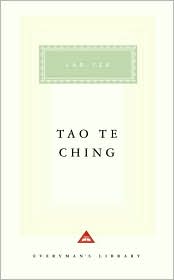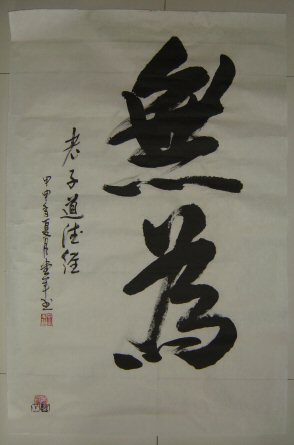A Breach of Wu Wei
During the past several days I seem to have hit a wall.First of all, in last Thursday's Tai Chi class I felt like I wasn't making much progress. The next day, Friday, I felt like all the zest for life about which I have been bragging was missing. By Saturday I was down with what seemed like the flu: a mass of body aches, feverishness, and so on. Was this actually a flu virus, I wondered, or was it some sort of delayed reaction to all the "strange" things I had been asking my body to do in the prior three weeks?
Meanwhile, my frustration with my inability to recall and practice the initial movements of the Yang-style long form grew and grew. I was able to do my individual Tai Chi exercises, but had no stamina or patience for anything further.
In the midst of all that I got word from my doctor that a recent chest X-ray shows there is, possibly, some sort of unexplained growth in the region of my trachea and thyroid. I'll need to get a CAT scan ... all of which (I thought to myself) is occasion for an anxiety and fear that I don't really need right now.
Later that night, I managed to injure my shoulder while struggling with the covers in bed. So much so that the next day, Tuesday, I did no exercises.
It's is now Wednesday, and I'm starting to feel better. Without being really sure whether or not I had (still have?) a virus, without any sort of resolution concerning the abnormality on my X-ray, I feel I can at least put a foot forward again.
§ So, what happened? It is probably not consistent with a "Tai Chi mentality," I imagine, to compartmentalize my experience and assign the entire fault for my illness to an external entity called a virus. Maybe I got sick because I somehow set myself up for being sick.
Maybe I got sick because I had begun to commit a fundamental breach of wu wei.
Wu wei is a critical notion in the Taoist philosophy set forth in the classic Tao Te Ching (DAO DUH JING), written (it is said) by the ancient sage, Lao-tzu (LAOH DZUH). This classic is also called, simply, the Lao-tzu, after its supposed author.
Tao Te Ching means, literally, Way-Power-Classic. Tao equals "Way." Te equals "Power," in the sense of the almost magical potency which the Polynesians call mana. And Ching equals "Classic." In English, The Classic of the Way and its Power.
Wu wei means "taking no action," writes Sarah Allan in her introduction to one available translation of the Lao-tzu.

 This Knopf/Borzoi edition (shown at left) changes the customary order of the 81 chapters of the Lao-tzu, so I will refer to the ordering and numbering in another edition, the Penguin Classics edition (shown at right). Both editions contain (different) translations by a single translator and expert, D.C. Lau, who also has written the introduction to the Penguin edition. The two translations are fairly close for this reason. The Knopf/Borzoi translation is based on a more-recently-found — but not necessarily more "correct" — source text than the Penguin translation.
This Knopf/Borzoi edition (shown at left) changes the customary order of the 81 chapters of the Lao-tzu, so I will refer to the ordering and numbering in another edition, the Penguin Classics edition (shown at right). Both editions contain (different) translations by a single translator and expert, D.C. Lau, who also has written the introduction to the Penguin edition. The two translations are fairly close for this reason. The Knopf/Borzoi translation is based on a more-recently-found — but not necessarily more "correct" — source text than the Penguin translation.Chapter 2 of the Lao-tzu (in its usual chapter order) says:
Therefore the sage keeps to the deed that consists in taking no action and practices the teaching that uses no words.
Chapter 43 says:
The most submissive thing in the world can run roughshod over the hardest in the world — that which is without substance entering that which has no crevices. That is why I know the benefit of resorting to no action ...
If wu wei means "taking no action" or "resorting to no action," what does that mean?
 |
| Wu wei 'Taking no action' |
In other words, we are in better accord with nature when we are more like water — submissive, without substance — than like the hardest rock, without crevices, which water nevertheless erodes away.
Allan goes on: "Wu wei is often translated as 'doing nothing', but the negative (wu) modifies the 'doing' [wei]; it is not that one does nothing, but that there is no 'action' which is not spontaneous."
§ So spontaneity is key. Per Allan: "According to [expert on Chinese philosophy] A.C. Graham, the 'Taoist relaxes the body, calms the mind, loosens the grip of categories made habitual by naming, frees the current of thought for more fluid differentiations and assimilations, and instead of pondering choices lets his problems solve themselves as inclination spontaneously finds its own direction, which is the Way.'"
Whereas at the outset of my Tai Chi pursuit I was "doing nothing," precisely in wu wei style, somewhere along the line I believe I converted it into "doing something." What I had been enjoying spontaneously step-by-step and day-by-day was now a matter of duty, haste, and greed for "improvement." I was metaphorically and literally clenching my teeth.
No wonder I got sick!










0 Comments:
Post a Comment
<< Home